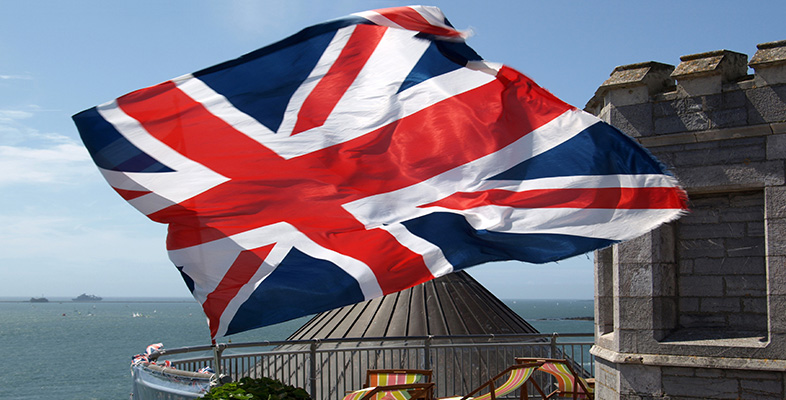5.4 ‘The desire to give politico-institutional expression to the first two core concepts’
There is a strong case for regarding the third element in the ‘core structure’ of nationalism as the key one. Generally, as we have seen, nationalists want their nation to have a state, or statehood. But political self-determination might have other outlets.
From the comparatively ‘soft’ demands to harder and less compromising ones, the spectrum might consist of some form of:
- recognition of the cultural distinctiveness of a ‘national’ minority community within a state, accompanied by institutions (cultural councils, a dedicated ministry, and so on) which sponsor the interests of that group (think of the ‘first nations’ in Canada)
- cultural federalism, where specific functions such as education are handed over to recognised ‘national’ or cultural groups for them to run on a semi- autonomous basis within an existing state
- regional federalism, where a territorial group has the right to run its own affairs substantially within a particular location within the state
- embryonic and possibly transitory 'statehood’ which might not be territorially continuous but may involve the promise of substantial degrees of autonomy (as with the Palestinian Authority)
- embryonic statehood under temporary international (normally UN) tutelage and protection, as in East Timor and Kosovo after the violent conflicts in both places
full independent statehood and recognition as such from other states and international bodies.
Different demands for national self-determination could lead to any one of these, or a combination of them. Some commentators are wary that demands for strong forms of national self-determination might be met (by colonial powers for example) with co-optive strategies, offering a lesser degree of autonomy in the hope of buying off or defusing the autonomy demands. Avner De-Shalit, for example, makes the point that the demand for self-determination is a political and not a cultural demand. Discussing the case of Palestine, he makes the case that cultural autonomy would not be enough to satisfy Palestinian demands, in theory or in practice:
Autonomy may be the solution to something but not to the Palestinian demand for national self-determination. The demand is political, and it therefore requires free institutions and a grass-roots democracy with active and meaningful participation, enabling Palestinians to determine their own rules, form independent foreign relationships, do business using their own currency, and have their own history of independence. All this is lacking in the solution of autonomy.
(De-Shalit, 1996, p. 916)
The importance of ‘giving expression’ to the political aspirations of one's own nation is clearly evident in how important the ‘trappings of statehood’ are – to aspiring states and existing ones. Consider, for example, disputes over the draft constitution of the EU in 2003 (the constitution was signed by European leaders in October 2004). The UK government was concerned about its sovereign statehood, and sought to expunge the word ‘federal’ from the draft, which included the statement that the EU ‘shall administer certain common competences on a federal basis’ (cited in Castle, 2003). Federalism does imply decentralisation, which is why many other countries in the EU don't mind it. But it also implies that the EU would be a state-like entity, despite policy decentralisation. For the UK government it was a challenge to the notion of the EU as a union of states. Giving expression to one's nation can stretch to retaining expression of those things that make it a nation-state. Prime Minister Tony Blair made this clear at the EU summit set up to finalise the new constitution when he said:
Of particular importance to us is the recognition – expressly – that what we want is a Europe of nations, not a federal superstate…. Taxation, foreign policy, defence policy and our own British borders will remain the prerogative of our national government and national Parliament. That is immensely important.
(Black and White, 2003)
To the Palestinians, for example, the trappings of statehood are vital from a quite different angle. Presenting the ‘halfway-house’ institutions of the Palestinian Authority as a sort of embryonic statehood has been important. As the post-Iraqi war context led to the US-sponsored ‘road map’ for Middle East peace, there was a sense that ‘Palestine’ both exists as a political entity – as a ‘state’, to be more precise – and that it did not. There is a ‘Palestinian Authority’ (though not called a ‘government’); and there is a ‘Palestinian Legislative Council’ (though it is often referred to as a ‘quasi-parliament’, implying that it is not a real parliament, i.e. part of a real government of a real state). The late Palestinian leader Yasser Arafat had the ‘chairmanship’ of the PA, but he was not a ‘president’. But the PA does have a ‘Prime Minister’ – a position which has been occupied by Mahmoud Abbas and Ahmed Qureia. Here we have a desire on the part of Palestinians and the other sponsors of the peace process to name and operate institutions and offices which look and sound state-like.
